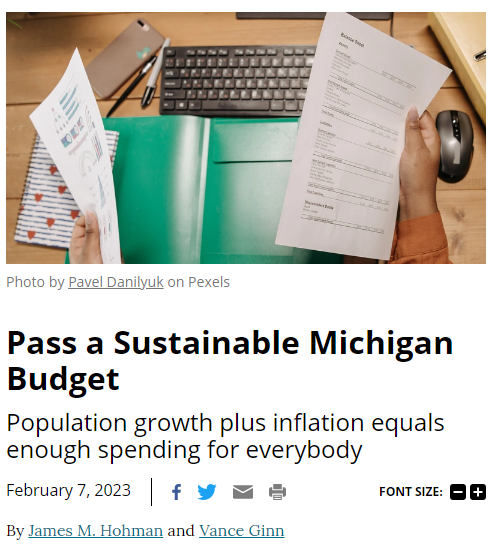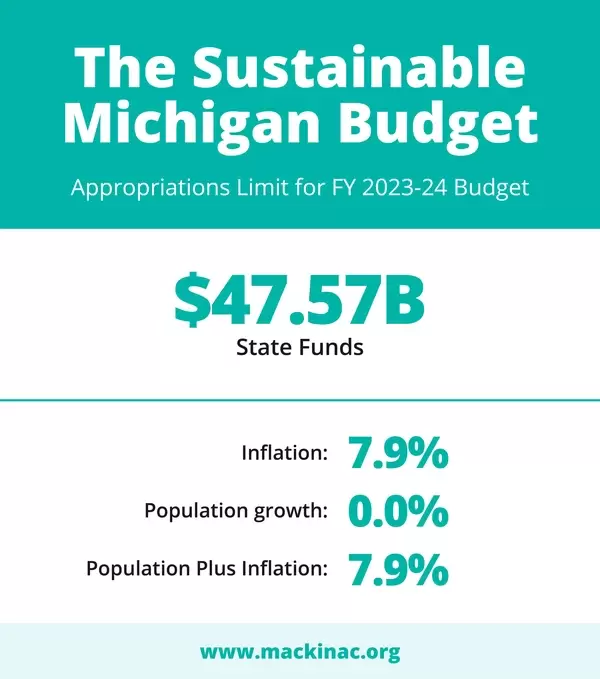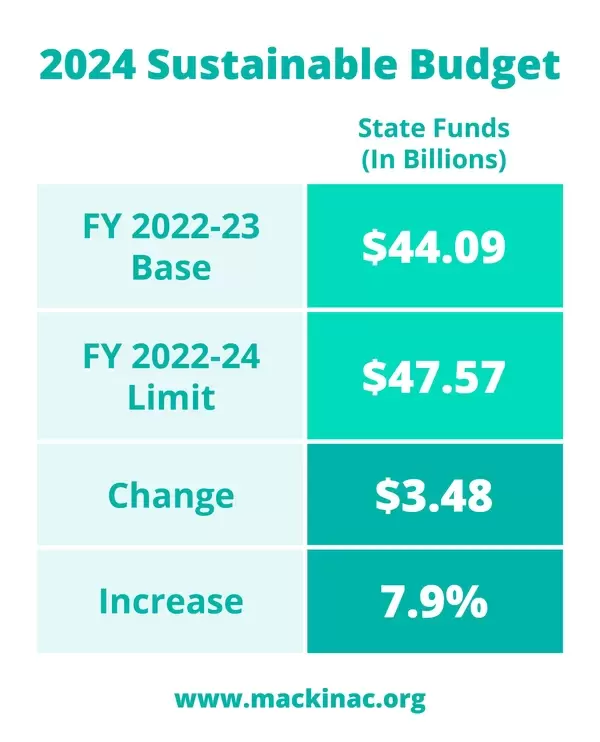|
Michigan lawmakers should be careful about the upcoming year’s budget. There is a lot of uncertainty about what is coming, but lawmakers have more than $8 billion in extra cash on their hands. They should adopt a Sustainable Michigan Budget to ensure that spending grows no more than the average taxpayer can afford. That means spending no more than the rate of the state’s population growth plus inflation. Because of the recent spike in inflation, this gives the state more money to spend in the upcoming budget even though population declined slightly in 2022. Michigan lawmakers initially budgeted $44.09 billion in state funds last year, excluding federal transfers and small amounts of local and private money. Lawmakers should approve a 2023-24 budget that pledges to spend no more than $47.57 billion in state funds. The benefits of budget restraint are clear. It gets lawmakers to prioritize limited taxpayer funds and ensure residents get the best return on their dollars. Due to past excesses, the budget has grown to be $6 billion [HJM1] more in the 2022-23 budget than it would be if it had followed the rate of population growth plus inflation over time. This amounts to $600 more dollars in taxes and fees paid per resident and more than $2,400 more, on average, for a family of four. Instead of following a sustainable spending pattern, Lansing has added many items to the budget that limit the state’s ability to address priorities. Lawmakers added $1 billion worth of special grants for 149 select projects at the last minute of last year’s budget cycle. Without an open process and established criteria, lawmakers simply waste money on politically directed spending. The Sustainable Michigan Budget also ensures that legislators remain flexible.
Michigan has a balanced budget requirement, and lawmakers tend to interpret that as a recommendation to spend all of the collected tax revenue. This doesn’t give lawmakers a lot of room to respond to unexpected needs, like increased demand for Medicaid in the event of an unexpected recession. Plus, the desire to spend all tax revenue puts pressure on lawmakers to increase taxes if revenue drops or falls unexpectedly. Passing the Sustainable Michigan Budget ensures legislators will have resources available to deal with an uncertain future. The most important benefit is sustainability. Spending less than the rate of population growth plus inflation would allow lawmakers to leave more money in taxpayers’ pockets while sufficiently funding limited government provisions. It provides certainty to Michigan residents and businesses about what the state government is going to collect each year and sets those rates at what taxpayers can afford. Slowing spending on current services also means that the state can fix a lot of its long-term financial problems. Lawmakers accidentally made school employees the state’s largest creditors by not saving enough to pay for all of the pension benefits promised to employees in the state-managed pension system. This is bad for teachers and taxpayers alike. Lawmakers can secure these pensions and save billions by using savings on current services to pay down pension debts. Michigan has new legislators and new Democratic majorities in both legislative chambers. They will have different priorities on which spending is important to them than the last legislature. One of their priorities ought to be for the growth of Michigan’s budget to be sustainable. It will take some restraint on their part not to spend every dollar they have available. This would improve the state’s financial position, require more judicious budgeting, and ensure that the state government remains sustainable. Originally published at Mackinac Center for Public Policy.
0 Comments
Leave a Reply. |
Vance Ginn, Ph.D.
|




 RSS Feed
RSS Feed